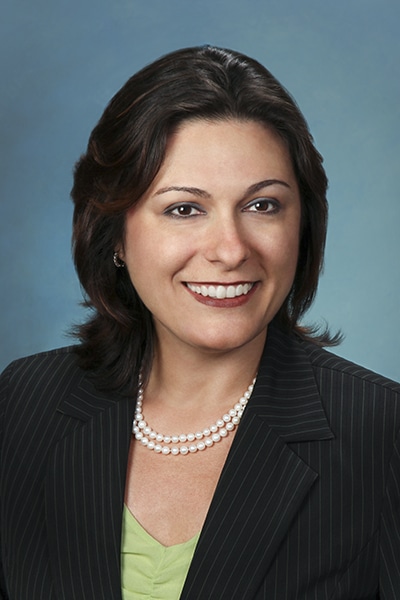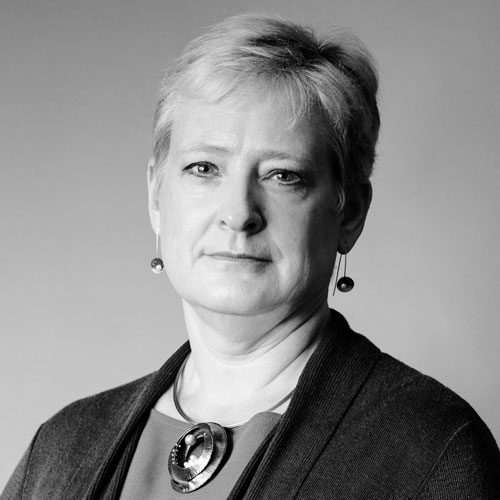Faith, focus, and fuel. These are the three elements that help make any plan come together, according to Natasha Milatovich. The regional vice president of human performance for the Southern California Region of Adventist Health West is quick to say that a commitment to performance excellence is also crucial for success. “Together, these are the elements that leaders of change initiatives thirst for and that are the most effective at achieving organizational renewal,” she says.
After witnessing the many transformational change efforts underway in the healthcare industry, Milatovich says, “We pay too little attention to change, and that slows our drive to achieve transformational change efficiently.” To avoid this oversight, she works tirelessly to ensure that Adventist Health better manages these elements. “Investing a modest amount of time and effort on this up front avoids paying a lot more in time, effort, and expense in course corrections later,” she says.

She adds, “At the core, when you look at the state of healthcare, associates seem to struggle with burnout because of the level of stress they deal with every day. On many occasions, we’re asking them to do more with less, to be a superman or superwoman; yet, as an industry, we’re not looking at what we can do to make people’s lives easier by helping them integrate work with their life and vice versa, making it difficult to find a balance.”
With master’s degrees in both human resources and business administration, senior HR certifications, and more than twenty years of healthcare HR experience under her belt, Milatovich is moving beyond work/life balance and striving to help the organization’s associates achieve life/work integration.
“Balance is something, to me, that evokes opposition; it’s almost a competition. Integration is about the way you design organizations to create synergies among all areas that define life,” Milatovich says. “So, it’s your personal well-being, your professional well-being, your family, the community you live in, and more.”
Milatovich’s passion for people is strengthened by memories of her own upbringing. Her father was a pediatrician, her mother and sister both nurses. She remembers conversations around the dinner table about clinical issues and her family’s professional challenges. She also has memories of her mother being so tired at the end of the day she had to take a nap before cooking dinner. Those recollections—and other stories about clinicians who go into work wondering if the patient admitted twenty-four hours earlier lived through the night—all fuel Milatovich’s resolve.
“Integration is about the way you design organizations to create synergies among all areas that define life.”
To accomplish life/work integration at Adventist Health, Milatovich has been part of a team working diligently to transform its HR department from a transactional resource into one that’s in proactive performance mode—one that provides better fuel, renewal, and growth opportunities for its associates.
“Our associates serve patients daily in an emotionally charged environment,” Milatovich says. “To provide better support, I work toward creating an HR practice that supports true life/work integration opportunities by deploying comprehensive plans that promote personal wellness and professional empowerment.”
Her efforts began about five years ago when Adventist Health started to align all of its corporate HR systems across its twenty-hospital enterprise. For Milatovich, that meant coordinating and unifying policies and procedures for about eight thousand associates across the Southern California region. Once that was completed, the organization implemented a new cloud-based IT system that has helped make HR more efficient by creating automated and self-service features.
Parallel with this process, Adventist Health introduced a new benefits plan in 2013 that incentivizes associates to live well. Those who voluntarily opt-in to this plan pay less per month for healthcare coverage but must earn a certain number of points per year to be eligible to enroll. Associates on this plan must complete an annual online wellness assessment, as well as an in-person biometric screening that measures weight, blood pressure, cholesterol, and other health measures. They also have to earn a certain number of additional points by participating in healthy activities such as annual doctor check-ups, exercise, and nutritious eating.
Shortly after implementing this new plan, Milatovich and her team realized they needed to improve sources of fuel and renewal available to associates at work. This began with looking at the food and beverage options available at the company’s cafeteria.
She and her team took steps such as replacing fried foods with healthier baked alternatives. They also began reducing the amount of sugar and salt in vending machines, and the on-site chefs began to offer healthy meals that associates could purchase to take home. For easier physical activity, walking paths were created and fitness centers were built, and leaders began encouraging their associates to take advantage of those during their breaks.
Milatovich and her team even created “Zen rooms” where associates can rest and listen to quiet music to recharge. Trained instructors are in place who can teach yoga, deep breathing, and other stress-relief techniques that associates can use to relax when they feel overwhelmed. On top of this, the company also provides offerings such as childcare services, an on-call counselor, and community outreach opportunities to help balance the pressures that come with working in healthcare.
“This is a strategic effort to help associates think less of what they have to do when they leave work so that they can focus on what’s most important while they are at work—taking care of our patients,” she says.
When associates have high-quality fuel sources and various ways to renew their minds, bodies, and spirits, Milatovich explains, it sets them up to pursue professional growth, improving themselves and the organization in the process.
In addition to fostering an environment that promotes health and well-being, Adventist Health also advocates for continuous education, growth, and development.
“In traditional organizations, associates get their degrees, get into a job, and then try figure out the rest on their own,” she says. “In the model we are working on, our associates will have coaches that guide them to the next steps in their careers.”
These coaches, who will be available through the life/work centers that Milatovich and her team are helping to implement at Adventist Health, will be able to provide advice on an array of subjects, from earning professional certifications to how to expand one’s skills within the company, or whether to pursue higher education.
Ultimately, Milatovich’s goal is that, by 2020, all these initiatives will position Adventist Health as an employer of choice for new recruits.
“We recruit people who have the energy and drive to experience the hazards and privilege of working in healthcare,” Milatovich says. “My job is to offer as much support as I can so they can be whole and fulfilled in the pursuit of achieving life/work integration while finding greater purpose in their calling to serve and carry out Adventist Health’s mission to live God’s love by inspiring health, wholeness, and hope.”


